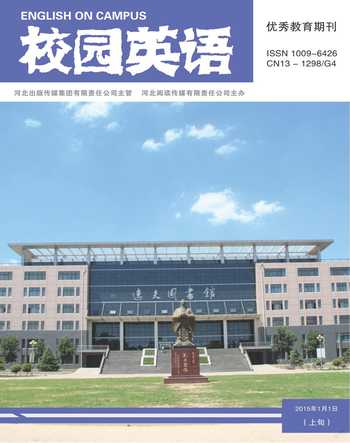Comments on Chomsky
杨婵娟
【Abstract】Chomsky is the founder of TG grammar.In the late 1950s, Chomskys TG grammar was published, which set off a “Chomsky revolution” on the academic fields.In this paper, the appearance and development of Chomskys TG grammar would be introduced and discussed.I will give my objective evaluations on TG grammar theory.
【Key words】TG Grammar; Chomsky Revolution; Linguistics
1.Introduction
Its difficult to summarize Chomskys TG grammar, Neil Smith and Deirdre Wilsons book entitled “Modern Linguistics: The result of Chomsky Revolution” has made a great attempt to quell dissent.The authors present that Chomsky has deemed there is merely one human language, which is determined and from which thousands of our daily language are derived.
2.Linguistic Basis
Linguistic knowledge is reflected by human beings grammar in his brain, which calls sets of rules.The responsibility of linguists is to seek out certain relationship of this evidence, and then formalize the regulation in assemble, which could explain the complexity of our linguistic language.
Linguistic knowledges subtleties sometimes are difficult to be perceived, furthermore, our comprehension of sentences not only incompletely depends on the lexicon, the structure of the sentences may create ambiguous meaning.
Chomskys TG grammar could describe many sentence structures which could not be explained in the past, and could dispose many disconnected sentences.But some children could not obtain these complex applications with composition rules.Therefore, under the circumstances in keeping description accuracy and complete, the simplification of description and the increase on the explanation of theory is still a striving direction for Chomsky.
3.Language Processing and Acquisition
Smith advocates that explanation and prediction are two independent conceptions.The correct explanation do not always led to correct explanation.In psychology overemphasizing the observable evidence may result in the method of researching behaviorism.Compared with behaviorism, mentalism attaches importance to “built-in structure”, and people think we could attain mother tongue through mentalism, which could depend our language and cognitive behavior.Chomsky regards linguistics as a part of psychology.The most easy and simple evidence is our intuition to our native language.Language processing is supposed to be classified by linguistic production and perception.
4.The Objective Evaluations
Chomskys attachment of language reflects his agreement of realism, naturalism and mentalism.He reckons linguistics is an empirical science, which should adopt natural science research methods.Chomsky believes the importance of analysis of language consists in the implication of philosophy and psychology problems.There is no common between formal and natural language.Someone criticized TG grammar had weaken its formalization in recent years.Chomsky do not find out a universal knowledge standard, but for the standard of cognitive linguistic knowledge.Chomsky theory, which is used to explain syntax, mainly touches upon the relationship of “sense”, while the reference belongs to the external part of brain, not to the Chomskys theory.So there is no sense to criticize that Chomsky did not solve the relationship of reference.
5.Conclusion
All in all, common sense sometimes lack of scientific grounds.For a persuasive theory, having explanation is of the utmost important, and following to the common sense lies in the second status.Whether in the field of linguistics or politics, Chomsky explores comprehension, annotation and the possible changes for the nature of things from beginning to end.For Chomsky, the aim of linguistics is to produce a generative grammar which captures the tacit knowledge of the native speaker of his language.Furthermore, Chomsky and his followers are interested in any data that can reveal the native speakers tacit knowledge.His theory is undoubtly a theoretical and a methodological success in linguistics and all other related sciences.
References:
[1]Chomsky, N.1972.Language and mind.New York: Harcourt Brace .Javanovich.
[2]Searle, J.1972.“Chomskys Revolution in Linguistics”, in New York Reviews of Books.New York Review, Inc.
[3]Smith, N.1999.Chomsky.Cambridge: Cambridge University Press.
[4]Smith, N.and Wilson,D.1979:The result of Chomsky Revolution.London: Penduin.
[5]诺姆·乔姆斯基著,牟小华等译.语言与心理[M].华夏出版社, 1989.
[6]诺姆·乔姆斯基著,黄长著等译.句法理论的若干问题[M].中国社会科学出版社,1986.

